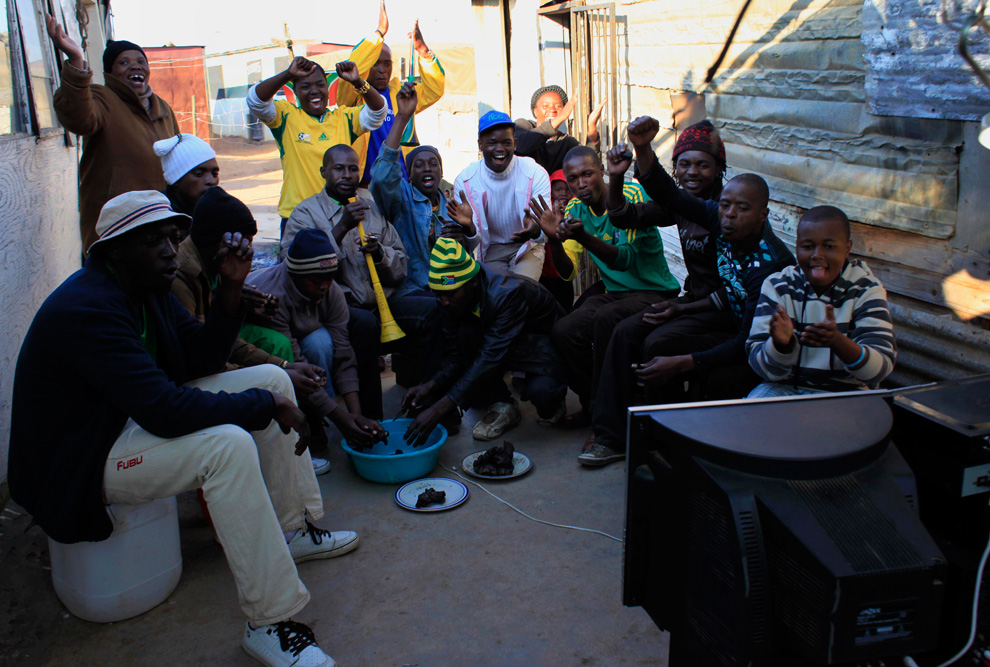A goal, whether on the pitch or migration across continents, drives migrants to undergo a difficult journey to Europe. For athletes, the goal is to be at the pinnacle of their respective sport. For migrants, that goal is to make a better life for themselves in the host country. For many athletes who migrate to Europe, what drives them to make the journey is the “European myth.”
This false image of Europe is perfectly encapsulated in Diome’s novel, Le ventre de l’Atlantique, with l’homme de Barbès (31). A man who traveled legally to Europe and struggled to make ends meet as a temporary worker, l’homme de Barbès saved up for years to travel back to Senegal, where he lives a lavish lifestyle that creates a facade of success. He tells the locals all about the greatness of France, omitting all of the struggles that he went through. Europe is said to be a place where there are no poor people, a notion that feeds migrants the idea that life outside of Africa is automatically a step up from their current situation. Despite all the faults in his stories, l’homme de Barbés “carried with him the hearts of the young islanders” (165).
The “European myth” also extends itself to sports, with migrant athletes playing in Europe, providing extra incentive to many to make the trip. One of the protagonists in the novel, Madicke, is a young man living on the island of Niodor in Senegal whose dream is to become a professional soccer player in Europe. Madicke’s dream is motivated by the Senegalese players he watches playing in France. Along with his idolization of European stars, those Senegalese players provide hope to young people like Madicke that someone like him can succeed abroad. The trip to France is made almost necessary as all of the famous Senegalese players that these young men know play in France.

An example of Europe and France as a catalyst to success is George Weah, the current president of Liberia. Recognized by many as the greatest African soccer player of all time, the Liberian’s career took off when at twenty-two he made the move from the Cameroonian league to France’s first division. Also known as “King George,” Weah took the league by storm and was able to use his money and success to help those back in Liberia. While the country struggled with poverty and civil war, “King George” kept the Liberian national team alive by financing a large part of the team himself. His performance both on the field and activism off the field led to huge popularity back home, culminating in a successful presidential campaign in 2017. Without his move to France, Weah might not have been able to use his talent to help his community back home.
L’homme de Barbés and George Weah, despite their different positions and varying levels of success, only help to perpetuate the “European myth.” Due to his status as a global celebrity and successful athlete, George Weah does not need to prove anything to the people back home. Instead, he claims that he acted out of genuine concern for his country and its people. Weah’s election as the president of Liberia further cements his position as a leader to those back home and an inspiration to those considering migration to Europe.
On the other hand, l’homme de Barbés feels like he needs to keep up this mirage of success to hide his truth. After the celebrations for his fourth marriage, L’homme de Barbés feels “soulagé d’avoir réussi, une fois de plus, à préserver, mieux, à consolider son rang” (relieved for having succeeded, one more time, in preserving, even better, consolidating his rank) (88). The people in the village only have his word go by, given that l’homme’s life in France is unknown to anybody else in Niodor. He keeps up “les mirages qui l’auréoulaiet de prestige” (the mirages that endow him with prestige) (88). Without the lies, he is just a man who failed to make it in France, which goes against the myth that he, along with the rest of society, perpetuates.
L’homme de Barbès is a fictional character whose role in Le ventre de l’Atlantique is to not only highlight the prominence of the European myth but also to demonstrate how important it is for those who migrate to maintain an image of success to those back home. While doing so in different ways, Stories like Weah’s or l’homme de Barbés’ can often hide the realities of the journey, potentially leaving migrants unprepared for the shortcomings they may face in the host country.